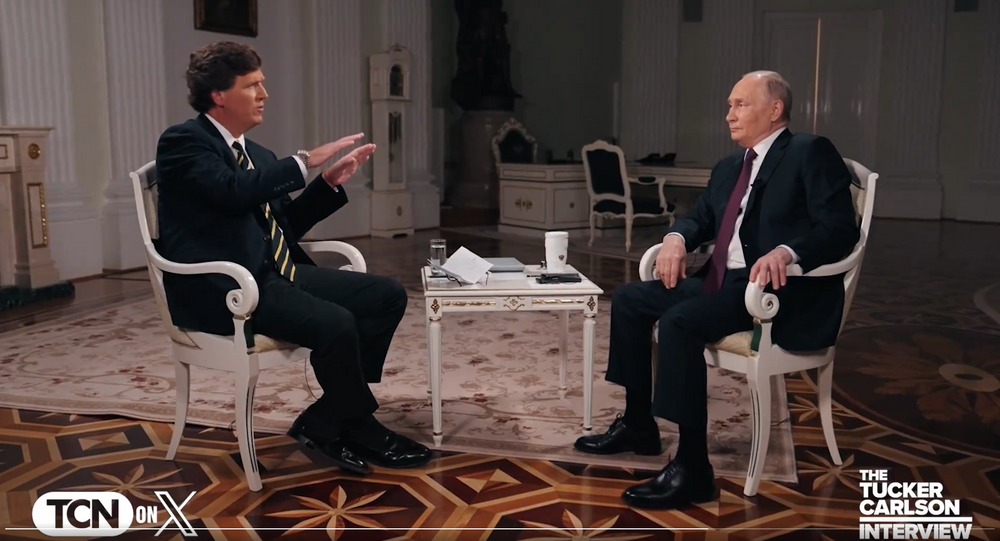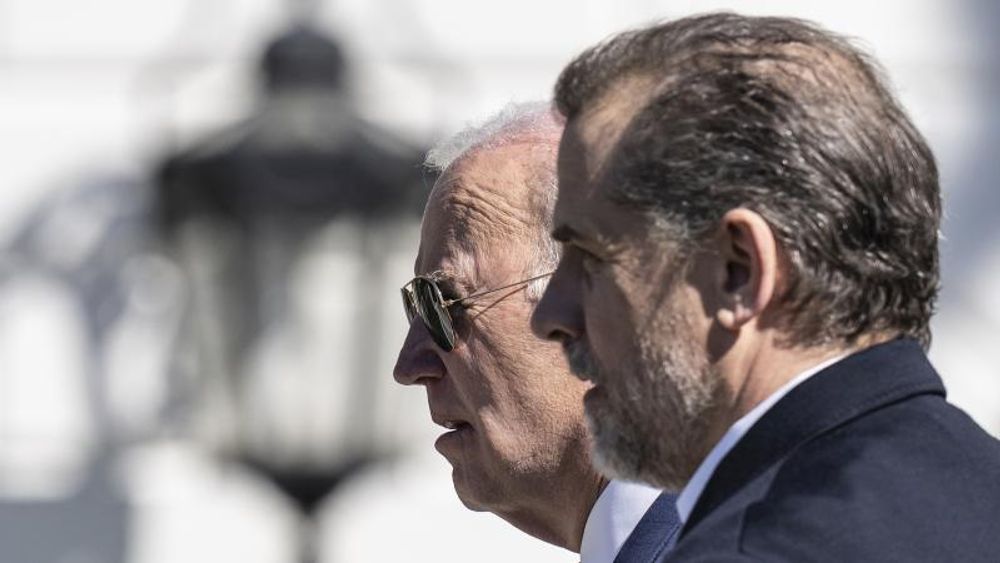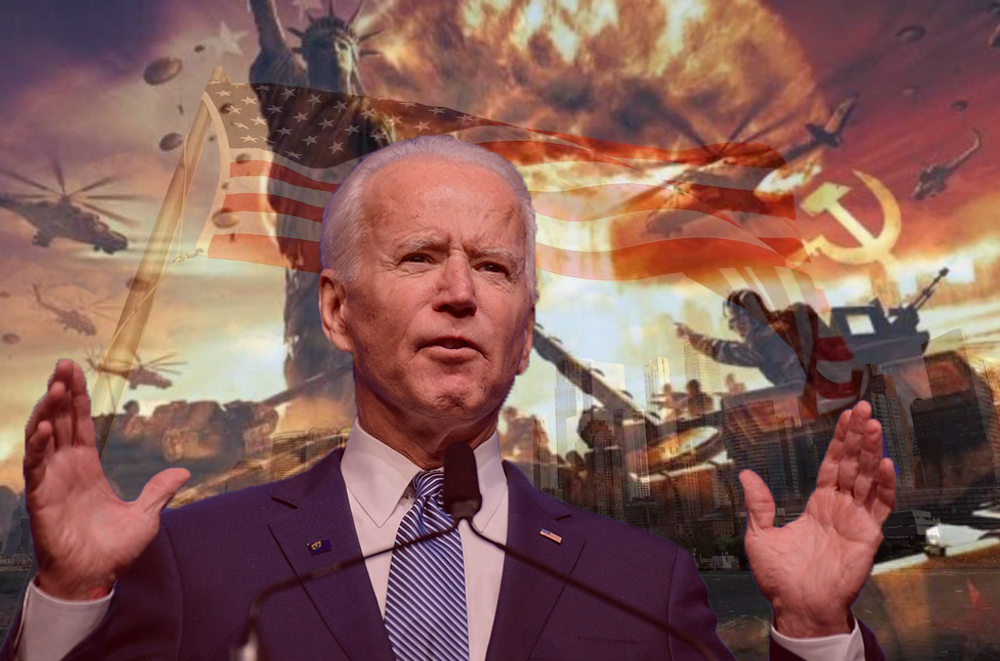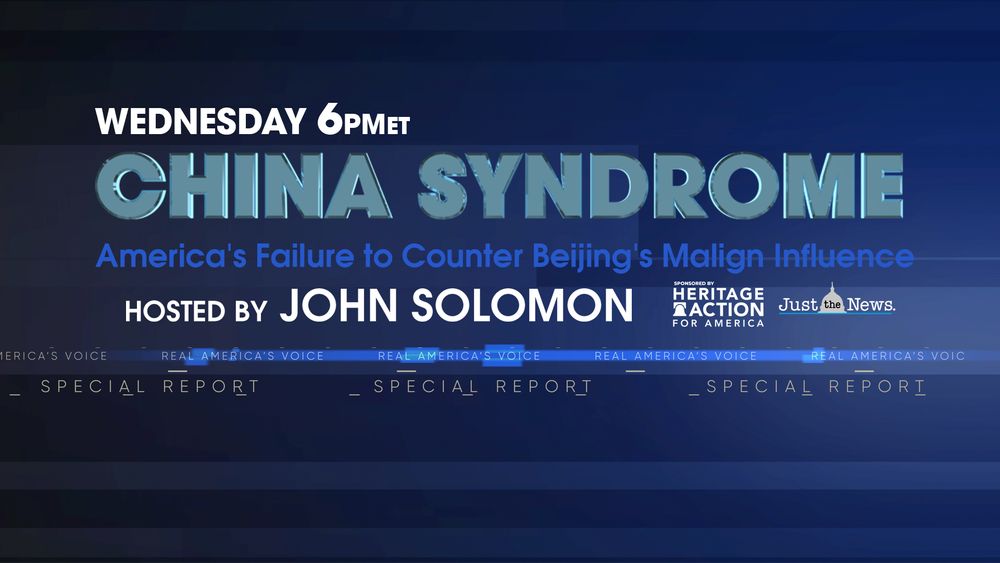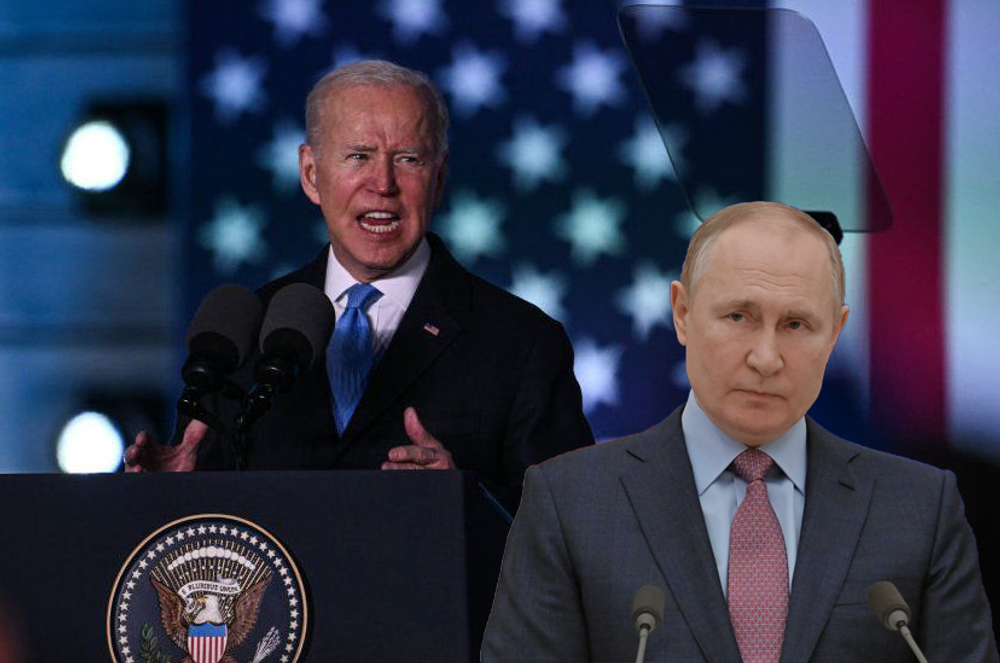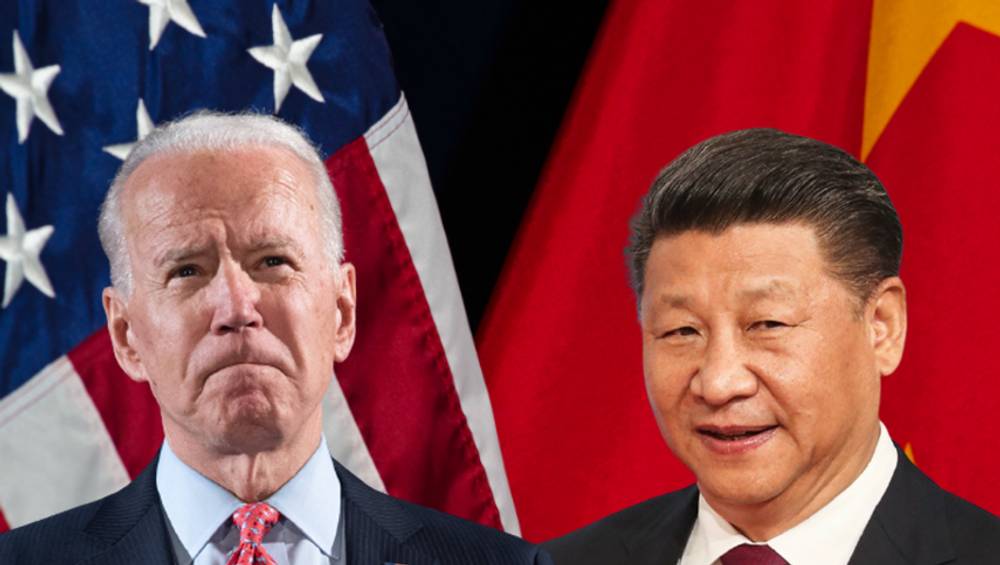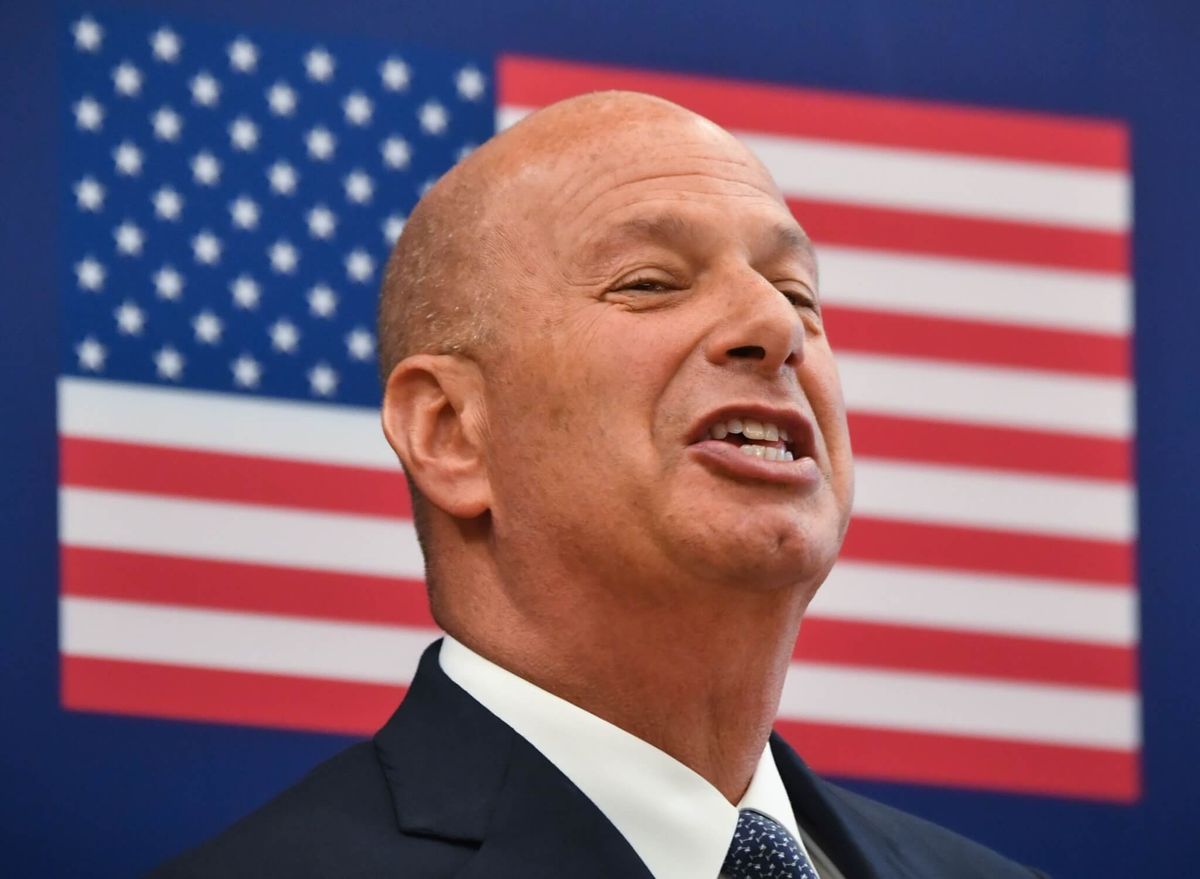
US Ambassador to EU Set to Testify in Impeachment Inquiry
After the State Department blocked him from appearing last week, U.S. Ambassador to the European Union Gordon Sondland is scheduled to appear Thursday before House lawmakers conducting an impeachment inquiry into President Donald Trump’s relations with Ukraine.
The House Intelligence, Foreign Affairs and Oversight committees are holding the closed-door deposition where Sondland is expected to say Trump would only offer a White House visit to Ukrainian President Volodymyr Zelenskiy if he committed to investigations involving Trump’s Democratic rivals.
Sondland, a Trump donor, was one of several diplomats who advised the Ukrainian leadership about how to carry out Trump’s demands after his July phone call with Zelenskiy. In the call, Trump asked the Kyiv leader for “a favor” — that Ukraine investigate one of Trump’s top Democratic challengers, former Vice President Joe Biden, and the business dealings of his son, Hunter Biden.
According to a U.S. intelligence whistleblower, Sondland and other diplomats exchanged a series of text messages in which the diplomats wondered why roughly $400 million in aid to Ukraine was frozen.
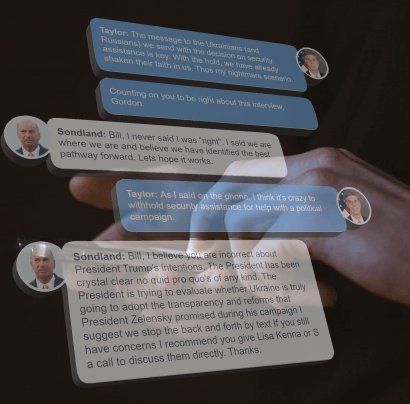
Reports say there was a five-hour gap between text messages, during which Sondland telephoned Trump.
The next message assured one diplomat there was no “quid pro quo” of any kind with Ukraine, followed by Sondland writing, “I suggest we stop the back and forth by text.”
Former Pompeo aide
On Wednesday, a former top aide to U.S. Secretary of State Mike Pompeo told House lawmakers that he quit last week in growing frustration over the politicization of the State Department, with the final straw being President Donald Trump’s ouster of the well-regarded American ambassador to Ukraine, Marie Yovanovitch.
In hours of congressional testimony, Michael McKinley, decried the agency’s unwillingness to protect career diplomats like Yovanovitch from political pressure.
McKinley’s statements, recounted by people familiar with his closed-door testimony before the House of Representatives Intelligence Committee, are the latest in a string of unflattering accounts about the behind-the-scenes operations of the country’s foreign policy and national security agencies.
McKinley has served as the U.S. ambassador in four countries, and he had other global postings before returning to Washington as an aide to Pompeo.
His testimony, along with that of others, has helped buttress the account of the unnamed whistleblower.
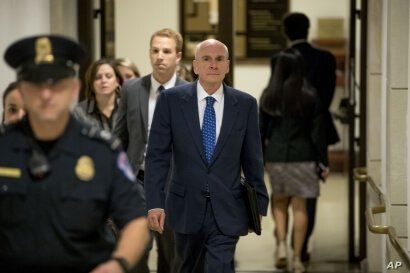
Both Bidens have denied wrongdoing, but Hunter Biden, 49, said this week he used “poor judgment” in agreeing to serve on the board of a Ukrainian energy company because it had become a political liability for his father.
Trump has described the call with Zelenskiy as “perfect,” and denied any wrongdoing.
Yovanovitch testified last week that Trump dismissed her based on “unfounded and false claims” after Trump’s personal attorney, former New York Mayor Rudy Giuliani, assailed her performance in Kyiv.
According to a rough recounting of the July conversation supplied by the White House, Trump told Zelenskiy, “The former ambassador from the United States, the woman, was bad news and the people she was dealing with in the Ukraine were bad news, so I just wanted to let you know that. The other thing, there’s a lot of talk about Biden’s son, and that Biden stopped the prosecution and a lot of people want to find out about that so whatever you can do with the attorney general would be great. Biden went around bragging that he stopped the prosecution so if you can look in to it … it sounds horrible to me.”
Trump continued Wednesday to attack the impeachment hearings against him.
Republicans are totally deprived of their rights in this Impeachment Witch Hunt. No lawyers, no questions, no transparency! The good news is that the Radical Left Dems have No Case. It is all based on their Fraud and Fabrication!
— Donald J. Trump (@realDonaldTrump) October 16, 2019
House Intelligence Committee Chairman Adam Schiff defended the process in a letter Wednesday, saying Republicans have not been kept out of the process.
“Questions have been primarily asked by committee counsels for both the majority and the minority, but also by Members of both parties. And the majority and minority have been provided equal staff representation and time to question witnesses, who have stayed until the majority and minority have asked all of their questions — often late into the evening,” Schiff wrote.
He said transcripts of closed-door interviews will be made public at a time when doing so will not jeopardize the investigation, and that “at an appropriate point” witnesses will be questioned in public sessions “so that the full Congress and the American people can hear their testimony firsthand.”
 Democratic Leadership Walks Out of White House Meeting With TrumpNext PostMaryland Congressman Elijah Cummings Dead at 68
Democratic Leadership Walks Out of White House Meeting With TrumpNext PostMaryland Congressman Elijah Cummings Dead at 68
